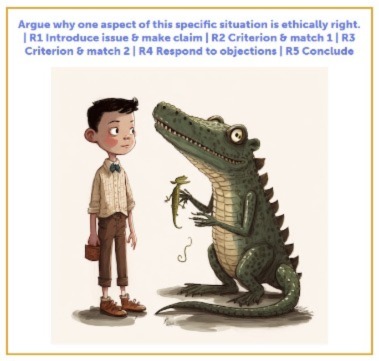
Argue why one aspect of this specific situation is ethically right. | R1 Introduce issue & make claim | R2 Criterion & match 1 | R3 Criterion & match 2 | R4 Respond to objections | R5 Conclude
Argue why this general trend is ethically right. | R1 Introduce issue & make claim | R2 Criterion & match 1 | R3 Criterion & match 2 | R4 Respond to objections | R5 Conclude

